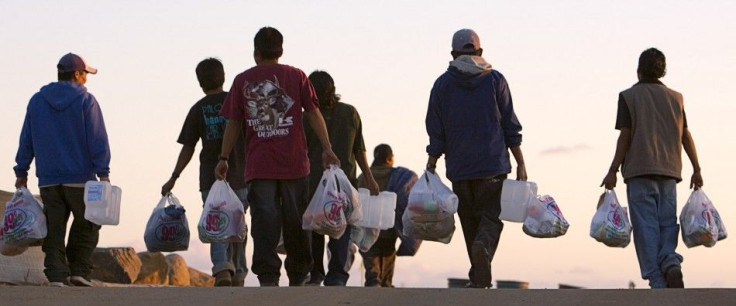Immigration Agents Sue Over New US Deportation Policy

Immigration agents are suing the federal government over a new policy that spares young immigrants from deportation, saying it is illegal and undercuts their obligations.
The program, known as Deferred Action for Childhood Arrivals, allows a specific population of immigrants who were brought to the country as children and have stayed out of trouble to apply for "deferred action," essentially a two-year reprieve in which they can obtain work authorization. The Obama administration has pushed the move as a sensible way to allow thousands of young undocumented immigrants to step out of the shadows, while Republicans have accused the administration of circumventing Congress and ignoring the law.
Immigration and Customs Enforcement agents took up that criticism in a lawsuit in Federal District Court in Dallas, saying the new program impeded their ability to carry out immigration law.
"They are in the unusual and untenable situation where they are asked to choose between following an order that makes them break federal law or disobeying the order and facing discipline at the hands of superiors," Kris Kobach, a lawyer for the agents, told the New York Times.
Kobach is part of a familiar cast of characters involved in the lawsuit. Currently Kansas' Secretary of State Kobach has become a national figure for his role in devising the tough new Arizona immigration law that spawned a series of copycat laws and was partially invalidated by the U.S. Supreme Court. He served as an informal immigration adviser to Mitt Romney's presidential campaign, but he disavowed any connection.
"The Romney campaign has nothing to do with this lawsuit," Kobach told the Kansas City Star. "It's completely separate of my involvement of providing informal advice to the Romney campaign."
The lead plaintiff in the case is Chris Crane, president of the union representing thousands of immigration agents. Crane has been a vocal critic of the Obama administration's attempt to prioritize deportations, testifying before Congress earlier this year that the administration's policies had created "uncertainty among agents and officers with regards to making arrests in the field" and charging that "law enforcement and public safety are no longer the priority at ICE."
At the heart of the dispute is the concept of "prosecutorial discretion," or the fact that immigration agents can choose which immigrants to target and, by extension, which immigrants to leave alone. The Deferred Action for Childhood Arrivals Program builds on a new set of guidelines, issued by the Obama administration last summer, that instructed immigration agents to target immigrants with criminal backgrounds and consider factors like family ties and military service in choosing who to pass over.
President Obama has described the policy as an efficient allocation of resources, saying it allows immigration agents to focus on important cases while sparing law-abiding immigrants. But immigration agents have argued it puts them in a bind: Rather than being given the discretion to choose their cases, they are being given orders about whom to pursue.
© Copyright IBTimes 2025. All rights reserved.





















